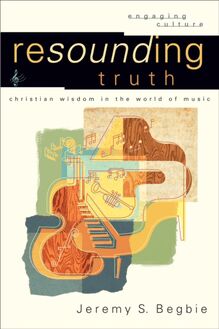Reviewing Leadership (Engaging Culture) , livre ebook
171
pages
English
Ebooks
2016
Vous pourrez modifier la taille du texte de cet ouvrage
Obtenez un accès à la bibliothèque pour le consulter en ligne En savoir plus
Découvre YouScribe en t'inscrivant gratuitement
Découvre YouScribe en t'inscrivant gratuitement
171
pages
English
Ebooks
2016
Vous pourrez modifier la taille du texte de cet ouvrage
Obtenez un accès à la bibliothèque pour le consulter en ligne En savoir plus
Publié par
Date de parution
21 juin 2016
Nombre de lectures
0
EAN13
9781441227188
Langue
English
Poids de l'ouvrage
1 Mo
Publié par
Date de parution
21 juin 2016
Nombre de lectures
0
EAN13
9781441227188
Langue
English
Poids de l'ouvrage
1 Mo
cover
series page
W ILLIAM A. D YRNESS AND R OBERT K. J OHNS TON , SERIES EDITORS
The Engaging Culture series is designed to help Christians respond with theological discernment to our contemporary culture. Each volume explores particular cultural expressions, seeking to discover God’s presence in the world and to involve readers in sympathetic dialogue and active discipleship. These books encourage neither an uninformed rejection nor an uncritical embrace of culture, but active engagement informed by theological reflection.
title page
copyright page
© 2004, 2016 by Bernice M. Ledbetter, Robert J. Banks, and David C. Greenhalgh
Published by Baker Academic
a division of Baker Publishing Group
P.O. Box 6287, Grand Rapids, MI 49516-6287
www.bakeracademic.com
Ebook edition created 2016
All rights reserved. No part of this publication may be reproduced, stored in a retrieval system, or transmitted in any form or by any means—for example, electronic, photocopy, recording—without the prior written permission of the publisher. The only exception is brief quotations in printed reviews.
Library of Congress Cataloging-in-Publication Data is on file at the Library of Congress, Washington, DC.
ISBN 978-1-4412-2718-8
Scripture quotations are from the Holy Bible, New International Version®. NIV®. Copyright © 1973, 1978, 1984, 2011 by Biblica, Inc.™ Used by permission of Zondervan. All rights reserved worldwide. www.zondervan.com
dedication
To our friend and mentor, Max De Pree, who taught us a great deal about leadership through his writings, example, and influence.
—Bernice M. Ledbetter and Robert J. Banks
To the colleagues and students of Eastern University’s PhD program who have inspired and challenged me over the years.
—David C. Greenhalgh
contents
Cover i
Series Page ii
Title Page iii
Copyright Page iv
Dedication v
Foreword by Max De Pree ix
Preface to the Second Edition xi
Introduction xv
1. Leadership: An Emerging Academic Discipline 1
2. Biblical, Historical, and Denominational Perspectives on Leadership 21
3. Spiritual and Religious Dimensions of Leadership: The Ethical Foundation 45
4. Faith-Based Approaches to Leadership 65
5. Practicing Leadership through Faithfulness, Integrity, and Service 91
6. Leader Development: Leaving a Legacy 113
7. Governance: Practicing Faith-Based Leadership 125
8. Christian Leadership in Action: Some Exemplary Case Studies 137
Conclusion: The Future of Leadership 157
Notes 163
Bibliography 173
Index 201
Back Cover 209
foreword
I don’t read many books on leadership, but the practice of good and ethical leadership is something I have thought a lot about. During my years at Herman Miller Inc., especially as CEO, I tried to integrate my work and my faith—that’s always been important to me and still is.
This book surveys the evolution of understanding about leadership and asks important questions about faith and leading that are necessary to consider if leadership is to have a future. I have come to believe that asking the right questions may be more important than getting to the answer. Questions help us to bring to the surface what is most important, and this book does just that.
Reviewing Leadership helps us to gain an understanding of the influences on leadership, things such as culture, timing, events in one’s personal history, and one’s faith. Leadership is a complex enterprise, and we do well to pay attention to influencing factors.
Peter Drucker once said that leadership and faith share a common core. They are both acts of intention, and this leads to integrity. Integrity in leadership is at an all-time low, and people need a reason to trust in leadership once again. Leadership is barren and hollow when it does not have integrity at its core. The examples of faithful leaders offered in Reviewing Leadership give us good reason to hope that the core of leadership remains intact for those leaders who fight the good fight of faith and remain strong.
The authors of this book are right to discuss the spiritual importance of leadership, which cannot be overstated. Leadership has always had a spiritual dimension, and now is the time to underscore the importance of this vital leadership component. Good, effective, moral leaders have a compass, something that guides them from the inside out, and faith is a good candidate for providing a clear set of moral principles to guide one’s leading and following. The authors touch on the vital importance of the character of a leader by discussing the ripple effect of leadership on people, projects, and processes in organizations. In fact, the character of a leader may be one of the most important factors in determining the success of an organization because it really does spread throughout an entire organization, helping it to be beautifully whole or sadly fractured and broken.
Reviewing Leadership is a book about leading from one’s spiritual center, which is the right thing to do and is not as easy as it sounds. It is really a journey of discovery about oneself and God and how one intends to lead based on who one intends to be.
The authors, whom I consider my friends, have offered some ways to think about this challenge that I encourage you to consider.
Max De Pree
preface to the second edition
Since the first edition of this book the field of leadership has only grown deeper and wider. There continue to be many, many books on leadership published each year. Yet as time has marched forward little attention has been given to the theological dimension and evaluation of current views on leadership. As the cultural importance of leadership has expanded, the topic has gained greater relevance for this series on engaging culture.
This book intentionally seeks to develop a substantially theological—rather than purely practical or even biblical—assessment of current leadership literature. It does this from a biblical base and with the conviction that what is best theologically ultimately leads to what is best practically. As the old but little appreciated adage goes, there is nothing more hands-on than a good theory. While we deal with leadership theory in this volume, we also attempt to critique and evaluate these ideas through the lens of theology. Thus, this book has a particular and unique shape. It is a summary of academic approaches and concrete experiences as much as it is a fruit of biblical investigation and reflection on our own leadership learning and experience.
Moreover, we believe this book is an exercise in cultural analysis and theological exploration. It is derived from historical and current writings on leadership and personal observations of past and present role models. Behind this diverse range of influences lie the convictions that, however normative biblical revelation may be, truth comes from God in a variety of ways, and all truth is God’s truth.
The introduction provides the historical backdrop for this book: the origins that led to the writing of the first edition. We thought it would be helpful to provide the context behind the initial impetus for this work. The introduction concludes with areas for future investigation, which we address in this second edition.
The opening chapter begins by acknowledging the ongoing interest in leadership as a topic of investigation. A review of the history of the study of leadership provides insights and reveals limitations in our understanding of the theory and practice of leadership. Definitions and the distinction between leadership and management along with the ideas associated with followership are considered. Chapter one foreshadows several themes that are addressed within the book, including ways culture influences an understanding of leadership and, of course, the intersections between leadership, Christianity, and spirituality.
The second chapter offers a brief historical perspective on leadership, beginning with Jewish views on leadership and followed by Paul’s innovative understanding and practice of leading. It then surveys historical models of leadership in the church, each containing a theological dimension. Application for leadership today is drawn from this historical and theological discussion.
The third chapter explores the religious, spiritual, and ethical dimensions of leadership by examining implicit and explicit expressions of spiritual and ethical leadership with implications for organizations. Through popular writing and significant examples, the implicit themes of spirituality and religiosity in leadership are presented. After addressing explicit approaches to spirituality and leadership, the text discusses specifically Christian approaches.
The fourth chapter begins by surveying a number of popular writings on leadership that include an overtly religious dimension. From this it moves on to discuss the strengths and weaknesses of a number of leading theological perspectives on leadership revolving around Jesus, biblical life stories, and the Trinity, the latter of which informs an understanding of women in leadership and the use of power.
The fifth chapter discusses translating ideas about leadership into practice. It examines the roles of imagination, emotion, and wisdom with the goal of a more holistic understanding of leadership and then turns to three key aspects of character: faithfulness, integrity, and a servant-like attitude.
The sixth chapter explores leadership development and spiritual development and addresses this question: How does one learn to lead ethically from a solid moral grounding? The themes of moral stress and resilience are discussed. Finally, a biblical understanding of leadership legacy is presented.
The seventh chapter considers the topic of leadership at the senior level by examining governance and the perils of success. The practice of faith-based leadership is considered through the lens of major religious views on what it means to lead.
The last chapter considers some exemplary













